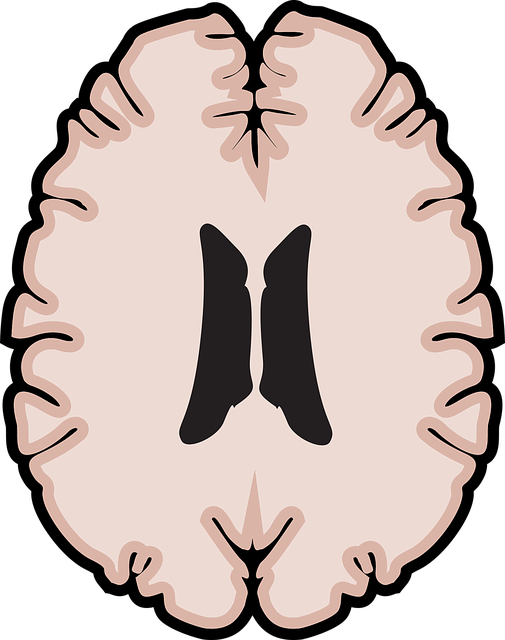Mental health data is a multifaceted landscape that includes therapy sessions (like Littleton Major Life Transitions Therapy), public awareness campaigns, and policy analysis, all contributing to accurate societal representations. Statistical analysis of client data from these sources allows mental health professionals to tailor interventions based on demographics, life transitions, and cultural backgrounds. This approach enhances treatment success rates and promotes positive mental health outcomes. For instance, Littleton Major Life Transitions Therapy uses advanced analytics to study the impact of major life changes like job shifts or parenthood. Integrating mindfulness practices further refines evidence-based interventions. Ethical considerations in data privacy and security are vital as technology advances; future directions include integrating communication strategies for equitable care based on real-world scenarios, drawing from innovative practices like Littleton Major Life Transitions Therapy.
Mental health data analysis is a powerful tool for understanding complex psychological phenomena. This article explores various aspects of this field, from Understanding Mental Health Data: Collection and Sources, to the Role of Statistics in Therapy using Littleton Major Life Transitions Therapy as a real-world case study. We delve into data analysis techniques that uncover hidden patterns and interpretation implications for personalized care. Additionally, we discuss ethical considerations and future directions, emphasizing the significance of mental health data analysis in shaping effective treatment strategies.
- Understanding Mental Health Data: Collection and Sources
- The Role of Statistics in Therapy and Treatment Planning (using Littleton Major Life Transitions Therapy as a case study)
- Data Analysis Techniques for Uncovering Patterns and Trends
- Interpreting Results: Implications for Personalized Care
- Ethical Considerations and Future Directions in Mental Health Data Analysis
Understanding Mental Health Data: Collection and Sources

Understanding Mental Health Data involves recognizing that it’s a multifaceted landscape encompassing various sources and collection methods. One significant source is therapy sessions, particularly those focused on major life transitions, like what Littleton Major Life Transitions Therapy provides. These sessions offer valuable insights into individuals’ emotional states, challenges, and coping mechanisms. Therapists document client progress, symptoms, and treatment plans, contributing to a rich data pool for analysis.
Additionally, public awareness campaigns play a crucial role in data collection by encouraging individuals to openly discuss their mental health experiences. This increased public dialogue leads to more accurate representation and understanding of mental health issues in society. Mental Health Policy Analysis and Advocacy also contribute by highlighting trends and disparities, guiding the development of Confidence Boosting initiatives that can be tracked and measured over time.
The Role of Statistics in Therapy and Treatment Planning (using Littleton Major Life Transitions Therapy as a case study)

Statistics play a pivotal role in therapy and treatment planning, offering valuable insights that can significantly enhance the effectiveness of interventions like Littleton Major Life Transitions Therapy. By meticulously analyzing data collected from clients who have undergone this therapy, mental health professionals can identify patterns, trends, and correlations between various factors such as age, gender, cultural background, and treatment outcomes. This analytical approach allows for a more nuanced understanding of what works best for different client groups, enabling therapists to tailor their strategies accordingly. For instance, data might reveal that certain stress reduction methods are particularly effective in managing anxiety relief among younger adults, while other techniques may prove more beneficial for older individuals facing life transitions.
In the context of Littleton Major Life Transitions Therapy, statistical analysis can help uncover specific challenges and resilience factors associated with major life changes, such as retirement, divorce, or the loss of a loved one. This knowledge is crucial for incorporating culturally sensitive practices in mental healthcare, addressing the unique needs of diverse client populations. By understanding the data, therapists can design more personalized treatment plans that incorporate relevant coping mechanisms and support systems, enhancing the overall success rates of interventions aimed at stress reduction and promoting positive mental health outcomes.
Data Analysis Techniques for Uncovering Patterns and Trends

In the realm of mental health data analysis, various techniques are employed to uncover patterns and trends that can significantly impact patient care and treatment outcomes. One such technique gaining traction is the examination of major life transitions as they relate to mental wellness. For instance, researchers at Littleton Major Life Transitions Therapy have utilized advanced analytics to explore how significant events like job changes, relocation, or the birth of a child influence an individual’s emotional regulation and overall mental health. By delving into these data sets, professionals can identify vulnerable populations and tailor interventions accordingly.
Furthermore, integrating practices such as Mindfulness Meditation and Emotional Regulation techniques within the analysis framework enhances the depth of understanding. These approaches not only help in interpreting the data but also provide actionable insights for improving mental wellness. For example, identifying patterns that suggest a correlation between increased meditation practice and better emotional resilience can guide therapy programs to incorporate mindfulness training as a standard component. This comprehensive approach ensures that data analysis contributes directly to evidence-based practices, ultimately enhancing the effectiveness of mental health services.
Interpreting Results: Implications for Personalized Care

Interpreting the results of mental health data analysis is a pivotal step in providing personalized care. By delving into the insights gained from these analyses, therapists can tailor their approach to meet each client’s unique needs, especially during pivotal life transitions. For instance, a client undergoing a major life transition might reveal heightened anxiety levels, which could be addressed through evidence-based practices like compassion cultivation, helping them navigate these changes more effectively.
In the context of Littleton Major Life Transitions Therapy, understanding the data allows therapists to design interventions focused on specific challenges. This personalized approach fosters better outcomes, enhances mental health awareness, and ultimately promotes anxiety relief. By recognizing patterns and trends, therapists can offer targeted support, ensuring clients receive the most suitable care for their individual circumstances.
Ethical Considerations and Future Directions in Mental Health Data Analysis

As mental health data analysis becomes increasingly sophisticated with advancements in technology, it’s crucial to navigate the ethical landscape carefully. Ensuring data privacy and security is paramount, especially when dealing with sensitive information related to mental health. This includes obtaining informed consent from participants, anonymizing data, and adhering to strict protocols to protect personal details. The field must also address potential biases inherent in data collection methods, ensuring diverse representations of various demographics to foster equitable care.
Future directions in mental health data analysis may involve integrating communication strategies and conflict resolution techniques into research designs. By understanding the nuances of human interaction, researchers can develop more effective interventions based on real-world scenarios. For instance, applying insights from Littleton Major Life Transitions Therapy could enhance our ability to support individuals navigating significant changes. Ultimately, these ethical considerations and innovative approaches will contribute to improving mental wellness outcomes, ensuring a holistic and culturally sensitive approach to care.
Mental health data analysis plays a pivotal role in enhancing therapeutic outcomes. As demonstrated by the case study of Littleton Major Life Transitions Therapy, statistical insights can inform treatment planning and personalize care, leading to improved patient well-being. Advancements in data collection and analysis techniques enable us to uncover hidden patterns and trends, guiding evidence-based practices. However, ethical considerations must be at the forefront, ensuring privacy and consent as we navigate the future of mental health data analysis, where personalized, effective treatment is within our grasp.













